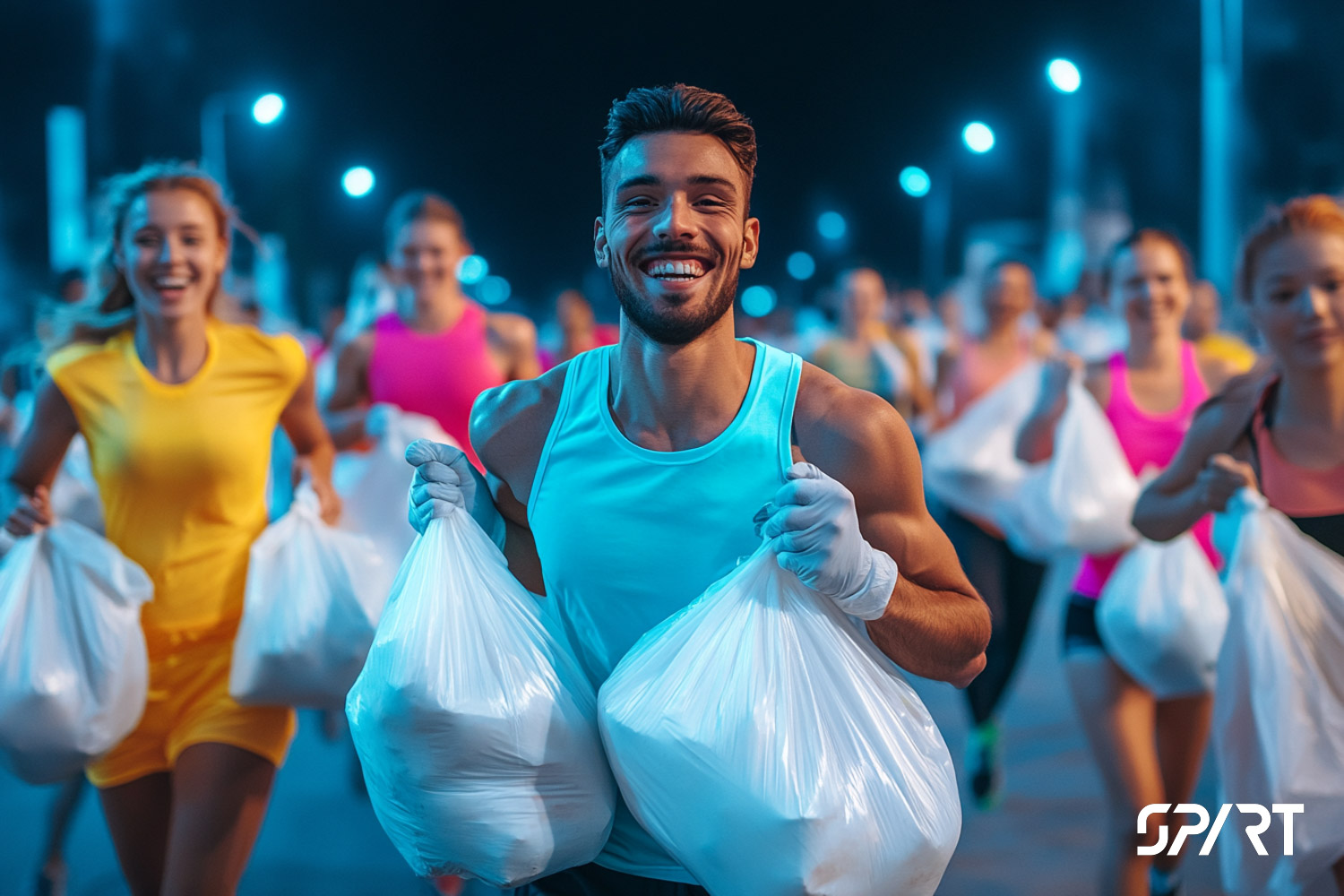Le sport est bien plus qu'un moyen de se maintenir en forme ou de se divertir. Il peut également être un outil puissant pour sensibiliser aux enjeux climatiques. L'association entre activité physique et engagement environnemental gagne du terrain, offrant une approche dynamique et positive pour aborder la transition écologique. C'est plus efficace, plus sympa et avouons-le, ça change des conférences interminables !
Le mouvement, un vecteur de sensibilisation

Intégrer le sport à des initiatives de sensibilisation permet de capter l'attention de manière ludique et engageante. L'effort physique favorise la mémorisation et l'implication, ce qui en fait un excellent support pédagogique. Par exemple, le plogging, une activité pendant laquelle les participants doivent collecter des déchets tout en courant, transforme une simple activité physique en un geste concret pour l'environnement. En combinant exercice et apprentissage, ces initiatives permettent de transformer des concepts abstraits en expériences concrètes.
Le sport au service de la prise de conscience

Le réchauffement climatique impacte déjà de nombreuses disciplines sportives, du ski aux sports nautiques, en passant par les marathons organisés dans des zones soumises à des vagues de chaleur extrême. Face à ces réalités, certains athlètes et organisations sportives se mobilisent pour alerter et promouvoir des comportements plus responsables. Car courir un marathon sous 40°C, c’est un défi… mais pas forcément celui qu’on voudrait relever !
Les événements sportifs deviennent ainsi des plateformes idéales pour sensibiliser le grand public à l'urgence climatique. Par exemple, certaines compétitions intègrent des quiz écologiques ou imposent des règles écoresponsables, comme la réduction des plastiques à usage unique et l'optimisation des transports.
Des athlètes engagés pour le climat
Les sportifs de haut niveau jouent un rôle clé dans cette dynamique. Leur notoriété leur permet d'influencer des milliers de personnes et d'attirer l'attention sur des causes environnementales. Plusieurs athlètes s'investissent désormais dans des initiatives écologiques, allant de la promotion de modes de vie durables à l'organisation d'événements sportifs respectueux de l'environnement.
Apprendre en bougeant : une approche innovante
L'association entre activité physique et apprentissage repose sur des principes neuroscientifiques solides. L'activation de la mémoire kinesthésique - le fait d'apprendre par le mouvement - permet de mieux retenir les informations. Cela réduit également l'anxiété associée aux discussions sur le climat, souvent perçues comme alarmistes.
Les initiatives basées sur cette approche se multiplient, proposant des ateliers interactifs où les participants doivent accomplir des défis physiques tout en répondant à des questions sur l'environnement. Par exemple, un match de football ou de basketball peut être organisé où chaque but ou panier marqué déclenche une question sur le climat à laquelle l'équipe doit répondre correctement pour garder son score. Une façon originale de mettre la pression… mais cette fois, c’est une pression positive ! Ce type de format favorise l'engagement et rend l'apprentissage plus accessible.
Chez SPART, nous valorisons les efforts individuels et nous encourageons nos utilisateurs à adopter la mobilité douce.
Associer sport et sensibilisation au réchauffement climatique est une stratégie gagnante. En mobilisant le corps et l'esprit, cette approche permet de rendre les enjeux écologiques plus concrets et motivants. Avec le soutien des athlètes et des événements sportifs, il est possible d'accélérer la prise de conscience et de favoriser des actions positives pour la planète.
Le sport, bien plus qu'un loisir, devient ainsi un moteur du changement écologique. 🌳
Par Candice Lhomme




















